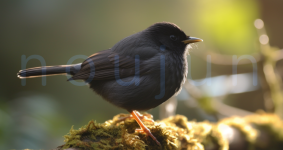Mysticete
Well-known member

Earlier today on Facebook a post was shared to a group I belong to, of some horses on a beach in the outer banks next to a giant sea turtle. It was an awesome image and I can get why it was shared, especially if your knowledge of sea turtles was limited. However, most people quickly came to the conclusion that it was a AI generated image. For one, that species of turtle doesn't get that big, and secondly there was some weirdness that you could pick out if you looked carefully, like a horse with only three legs. And of course, earlier this year a AI-generated image of a ridiculously colorful "Baby Peacock" made the rounds fooling folks.
Anyway, AI image generation has already gotten ridiculously good. So it occurred to me, probably in a year or two, if someone wanted to prank someone or just be nefarious, it would be pretty straight forward to create images of rare birds in unusual locations that would be much more difficult to detect.
So do you folks think this might pose a future challenge when trying to figure out if a rarity is real? Will photographs become less useful by themselves? Anyway just some idle thoughts I had at lunch today.
Anyway, AI image generation has already gotten ridiculously good. So it occurred to me, probably in a year or two, if someone wanted to prank someone or just be nefarious, it would be pretty straight forward to create images of rare birds in unusual locations that would be much more difficult to detect.
So do you folks think this might pose a future challenge when trying to figure out if a rarity is real? Will photographs become less useful by themselves? Anyway just some idle thoughts I had at lunch today.










